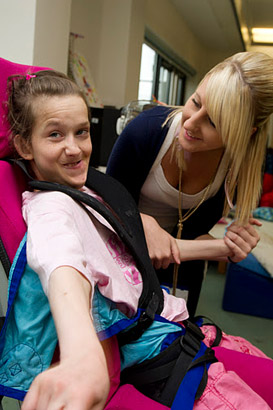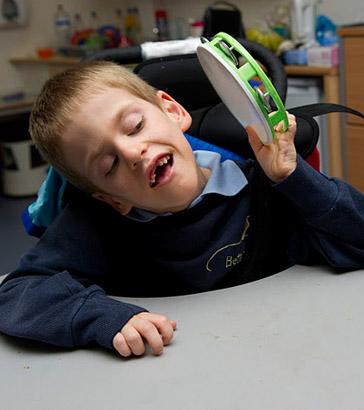
Good oral health is essential for speech, communication,
enjoyment of food, good nutrition, social integration and can improve self-esteem and dignity. It can lead to the reduction
or elimination of dental disease, which may cause pain, discomfort or distress from the teeth and mouth, most of which is
usually preventable.
Bellis, 2008

People with learning disabilities have the same rights as all other members of society.
Dental services should be provided in a way that:
- Recognises that they are individuals.
- Recognises their right to participate in decisions that affect their lives.
- Provides the amount of support necessary to enable everyday living, including adequate health care.
Oral health and quality oral health care contribute to holistic health. It should be a right not a privilege.
British Society for Disability and Oral Health (2001)


People with PMLD experience more problems with their oral health than the general population for a number of reasons.
These may include: oral and facial developmental abnormalities; various medical conditions; the effects of medication; and
the consequences of challenging behaviour. Poor oral hygiene further exacerbates these inherent problems.
PAMIS, 2011

Scope (2010) identifies possible issues in oral care for people with cerebral palsy, caused by:
- Being unable to clean teeth.
- Having to eat soft food.
- Difficulty in chewing or swallowing.
- Not being able to communicate sensation in the mouth.
- Fear of having the mouth examined.
- Behavioural problems caused by not being able to communicate toothache or other sensations.
The National Institute of Dental and Craniofacial Research (2009) advises the following strategies to help reduce anxiety around dental appointments:
- Brief the whole dental team (eg nurses, receptionist, etc.) about the child or young person's needs.
- Arrange for a pre-appointment to familiarise the child or young person with the environment.
- Awareness of the child or young person's communication needs, interaction styles, and difficulties.
- Presence of familiar people and the child or young person's favourite item during the appointment.
- Making appointments short.
- Providing only treatment that the child or young person can tolerate.
- Praise and reinforce good behaviour.
- Try to end each appointment on a good note.
- Use immobilisation techniques only when absolutely necessary to protect the patient and staff.
The National Institute of Dental and Craniofacial Research (2009) publishes a series of copyright free booklets for dentists including:
- Continuing Education: Practical Oral Care for People With Developmental Disabilities
- Practical Oral Care for People with Autism
- Practical Oral Care for People with Cerebral Palsy
- Practical Oral Care for People with Down Syndrome
- Practical Oral Care for People with Intellectual Disability
- Wheelchair Transfer: A Health Care Provider's Guide
- Dental Care Every Day: A Caregiver's Guide

PAMIS (2011) Oral health care for people with profound and multiple learning disabilities. Dundee: PAMIS

Perlman, S.P., Friedman, C. and Fenton, S.J. (2008) A Caregiver's Guide to Good Oral Health for Persons with Special Needs.
Scope (2010) Dental care for people with cerebral palsy (factsheet). London: Scope.